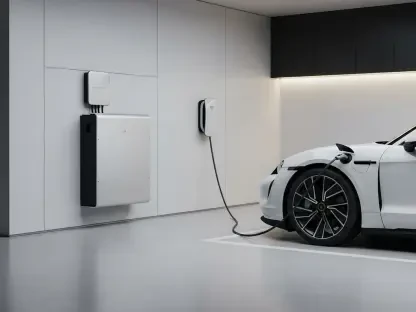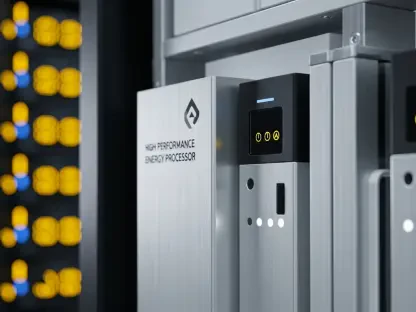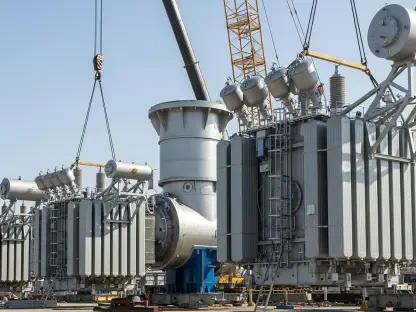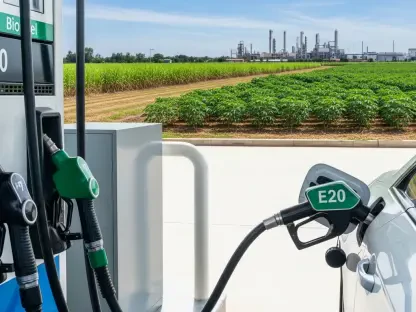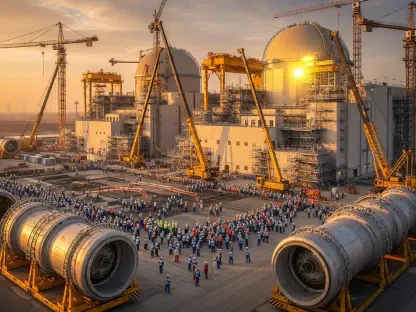In a world increasingly focused on sustainability, a contentious debate has emerged online about the true impact of clean energy technologies on jobs and economic stability, sparked by a provocative opinion shared in a popular discussion forum. This perspective, which suggested that green energy initiatives lead to job losses and economic decline by pushing companies to relocate overseas, ignited a firestorm of responses. Many argued against this view, pointing to data and real-world examples that paint a different picture. This article delves into the heart of this debate, exploring whether clean energy truly poses a threat to employment and economic health or if it offers untapped opportunities for growth and prosperity. By examining both the skepticism and the evidence-based counterarguments, a clearer understanding of this critical issue begins to emerge.
Unpacking the Skepticism Surrounding Clean Energy
Misconceptions About Job Losses
A widely circulated opinion in online discussions has raised alarms, asserting that clean energy regulations force businesses to move operations to countries with looser environmental standards, resulting in significant job losses domestically. This viewpoint often stems from a fear that stringent policies increase operational costs, making it more attractive for companies to relocate. Critics of clean energy argue that this not only weakens the local economy but also paradoxically harms the environment by shifting pollution to less regulated regions. Such concerns resonate with those worried about immediate economic impacts, particularly in industries historically reliant on fossil fuels. However, this perspective often overlooks broader trends in global trade and manufacturing that predate the rise of green initiatives, suggesting a need for deeper analysis beyond surface-level assumptions about clean energy’s role in job displacement.
Historical Context of Outsourcing Trends
Delving into the history of job relocation reveals that outsourcing has been a persistent trend for decades, long before clean energy policies gained prominence as a political and economic focus. Industries in the U.S. have shifted operations overseas since the late 20th century, driven by factors like lower labor costs and globalization rather than environmental regulations. Commenters in online debates have pointed out that attributing job losses solely to green energy adoption ignores these longstanding economic patterns. This historical lens helps clarify that while clean energy transitions may coincide with certain economic shifts, they are not the root cause of outsourcing. Instead, the narrative around clean energy often becomes a convenient scapegoat for deeper, more complex systemic issues in global trade dynamics, highlighting the importance of separating fact from emotionally charged rhetoric in public discourse.
Highlighting the Economic Advantages of Green Initiatives
Job Creation Through Clean Energy Projects
Contrary to the fears of job losses, substantial evidence suggests that clean energy projects are a robust driver of employment across various sectors. From constructing wind farms to installing solar panels, these initiatives generate direct jobs for skilled workers while also creating indirect opportunities in supply chains for equipment manufacturing and maintenance services. The economic ripple effect is notable, as wages earned by these workers flow into local communities, boosting small businesses and services. Studies indicate that for every job created in the renewable sector, additional roles emerge in related fields, painting a picture of growth rather than decline. This surge in employment challenges the notion that green policies are inherently detrimental, instead positioning them as a catalyst for revitalizing economies through sustainable development and innovation in energy solutions.
Business Attraction and Public Health Savings
Another compelling benefit of clean energy adoption lies in its ability to attract businesses and yield significant public health savings. A survey of nearly 1,500 business leaders across 15 countries revealed a strong preference for relocating operations to regions with higher clean energy usage, driven by cost savings on energy and a commitment to sustainability goals. This trend suggests that nations investing in green infrastructure could see an influx of corporate interest, further stimulating economic activity. Additionally, cleaner air resulting from reduced pollution is projected to save the U.S. economy billions annually by 2030 through decreased healthcare costs and improved worker productivity, according to credible climate research. These dual advantages underscore how transitioning to renewables not only counters economic decline but also builds a healthier, more appealing environment for both businesses and communities, offering a forward-looking approach to growth.
Long-Term Economic Stability
Looking beyond immediate gains, clean energy offers a pathway to long-term economic stability by reducing reliance on finite fossil fuel resources, which are subject to price volatility and geopolitical risks. Investments in renewables create a more predictable energy market, shielding economies from sudden shocks caused by oil price spikes or supply disruptions. This stability is crucial for industries planning long-term budgets and expansions, fostering confidence in sustained growth. Furthermore, as technology advances, the cost of renewable energy continues to decline, making it an increasingly competitive option compared to traditional sources. By prioritizing green infrastructure now, economies can position themselves as leaders in a future dominated by sustainable practices, ensuring resilience against both environmental and economic challenges that lie ahead over the coming decades.
Reflecting on the Broader Impact
Lessons From a Heated Debate
Looking back on the fiery online exchange that sparked this discussion, it became evident that misinformation about clean energy’s economic effects had taken root in some corners of public opinion. The sharp rebuttals from informed participants dismantled the myth that green policies inherently led to job losses, instead illuminating the multifaceted benefits that had been overlooked by skeptics. This clash of views served as a reminder of how easily unfounded claims could spread, especially in digital spaces where emotional arguments sometimes overshadow data. The debate ultimately highlighted a critical need for accessible, accurate information to guide public understanding of complex issues like energy transitions, ensuring that future conversations are grounded in evidence rather than speculation.
Moving Forward With Informed Strategies
As the dust settled on this online controversy, the path ahead crystallized around the importance of education and policy support to maximize clean energy’s potential. Governments and industry leaders were urged to invest in workforce training programs that equip workers with skills for emerging green jobs, smoothing the transition for those in declining sectors. Simultaneously, public campaigns to counter myths about economic harm proved essential in building trust and acceptance of renewable initiatives. By fostering partnerships between businesses, communities, and policymakers, a balanced approach emerged that prioritized both environmental goals and economic vitality. These steps, rooted in the lessons of past debates, offered a blueprint for harnessing clean energy as a driver of prosperity rather than a source of division, paving the way for sustainable progress in the years to come.



